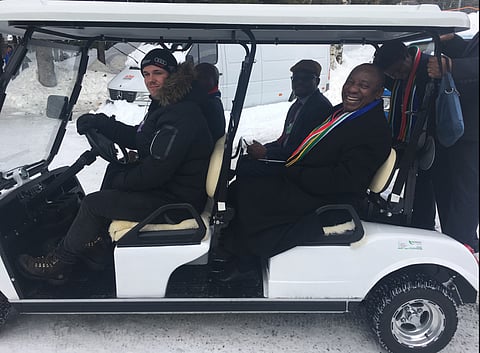Hope Springs: Why Ramaphosa-led South Africa means the future is bright.
After a career that included the creation of business radio and two major online portals, Alec Hogg is South Africa's best known financial journalist. He has also been one of the rare optimists in recent times, keeping faith that the country would eventually self-correct – often signing off his 100 000 subscriber daily newsletter with "Hope Springs". Late last month, Hogg attended the World Economic Forum's annual meeting in Davos for the 15th time where president-in-waiting Cyril Ramaphosa made a favourable impression. He rates this year's event as South Africa's best since 1993 when Mandela, De Klerk and Buthelezi shared a stage to global acclaim. Now based in London, the founder of Biznews unpacks the story of a South Africa poised for a turnaround, a country now rated by international investors as the most exciting destination on earth.
Alec Hogg's presentation to Shell Dealer Conference at Sun City in the NorthWest province of South Africa, February 2018.
What I'm going to be talking to you about today is the Fourth Industrial Revolution (4IR). It's a term that describes many things. I'm going to be bringing you back to SA where we've come from – 2017 was not the easiest year for SA, but there's pretty good reasons to understand why it happened and why we are looking forward to a future, which will be very different, very blessed for this country.
___STEADY_PAYWALL___

